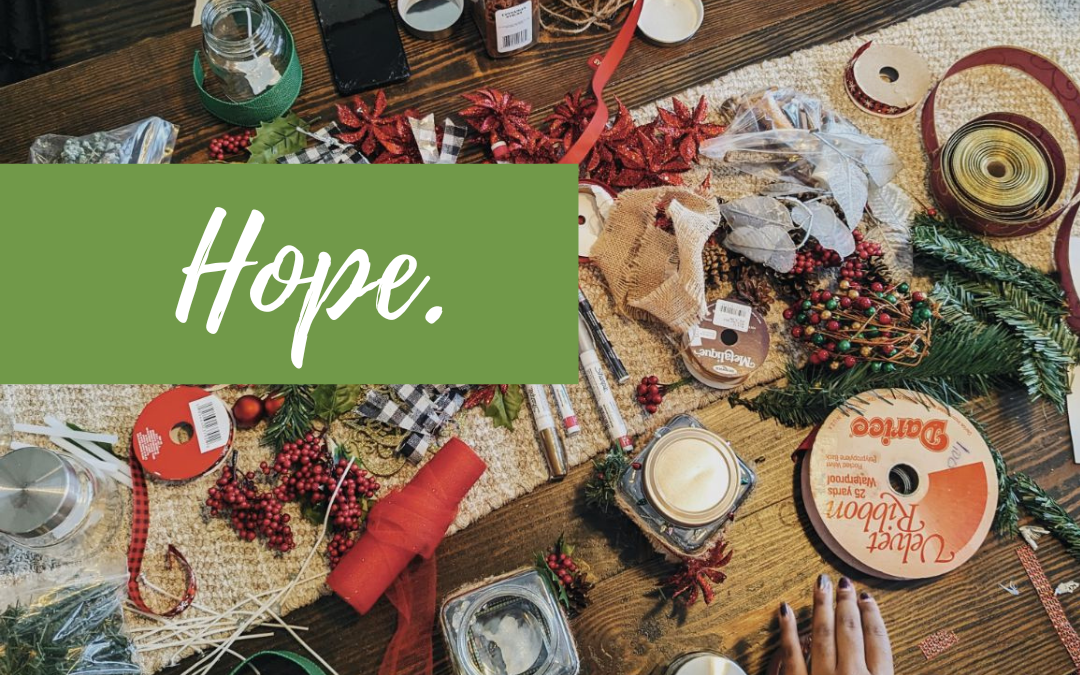A message on Hope for the Advent season. Written by RAHAB Ministries CEO, Jaime Blair.
Hope is fascinating. I talk about it a lot, often with my friends. We exchange words and songs, writings, scriptures, artistic expressions—always trying to grasp its substance and essence.
Over the weekend, one of them asked me to recall my earliest memory of hope. I was a toddler waiting for someone to pick me up from daycare. I remember the inside of the apartment. It was in the complex where we lived in Houston, Texas. It was dimly lit. I was the only kid left. The feeling I recall was yearning. I wanted to be with my family. I wanted to go home. I specifically remember the moment my second cousin arrived at the door. As soon as I saw her face, tears started streaming down my face. The emotions my body was holding were released. Looking back, I can see that hope was the thing sustaining my 3-year-old self in the unknown.
But what is it?
And how did it do that?!
Essentially, hope is desire + belief. The belief is magical. The belief that someone really was coming for me held my little self together in the waiting. None of my people were there. I didn’t have the thing I was waiting for. But I was holding hope that it would come and that was enough. Hope changed the present moment.
What a powerful thing to experience. And something we never would but for the absence of the thing we desire. Hope is not tied to the receiving of the thing but exists in the believing for it. The only time we have hope is in the void, the lacking, the absence. Who hopes for what she already has? (Romans 8:24).
In his book Man’s Search for Meaning, Viktor Frankl, a survivor of four Nazi death camps (including Auschwitz) whose parents, brother, and pregnant wife did not survive, reveals the incredible power each one of us has in the face of suffering: we get to choose how we see it. He tells stories of how prisoners who chose gratitude, humor, and hope experienced inner freedom and purpose in the midst of unfathomable pain while those who let go of hope lost physical strength and immunity and died. He writes: “In the final analysis it becomes clear that the sort of person the prisoner became was the result of an inner decision, and not the result of camp influences alone. Fundamentally, therefore, any man can, even under such circumstances, decide what shall become of him—mentally and spiritually. He may retain his human dignity even in a concentration camp.”
That hope can physically sustain our lives is mind blowing. But there’s something cooler still—we have the ability to give hope to people who don’t have it for themselves. God has empowered us to carry our belief into dark and desperate spaces and speak it into the ears and hearts of those who don’t yet know its power. If we can convey even a tiny bit of hope to a hopeless woman, her experience of life shifts in that moment.
Hope is God’s compassionate provision for shattered souls, and we have the privilege of delivering it in any given moment. What a powerful, miraculous experience. What sacred work.

